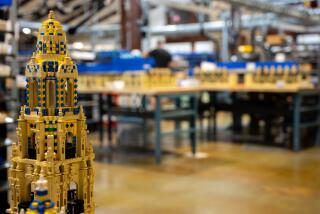Daring to Dream of Frankieâs Future
This year I finally allowed myself to start dreaming about my sonâs future again.
Although Frankie continues to struggle against the effects of autism, a mysterious neurological disorder, his improvement has been so steady that at times he seems a completely normal 9-year-old, right down to braces for his teeth and a growing interest in video games and the latest cartoon series (his favorite is âSpongeBob SquarePantsâ).
I sometimes find myself musing about Frankieâs future not with the concern and fear I often felt when he was first diagnosed with autism six years ago. Now I can envision him achieving things once thought impossible for all but the most exceptional autistic children.
People with autism cope with a complex brain disorder that interferes with their ability to process stimuli like light, sound or touch. It affects one in 500 children, according to public health statistics, and the incidence is rising. In severe cases, victims are institutionalized. But even in its mildest form autism interferes with the ability to learn and interact socially.
Despite his challenges, Frankie is now reading and doing math at third-grade level, thanks to home schooling by my sister, Lisa Garcia, an experienced Head Start teacher. While Aunt Lisa focuses on the education basics, my wife, Magdalena, and I continue to seek new or innovative therapies that will help Frankie prepare for his eventual return to the classroom.
Recently, Frankieâs therapists at the Center for Autism and Related Disorders in Encino have been trying to teach him to understand another personâs perspective, something most children learn naturally but that people with autism must be taught. On the medical side, our pediatrician, autism specialist Dr. Ricki Robinson, has Frankie in two therapies intended to help his brain better process what he hears. She explains that Frankieâs problem is not that he canât hear certain things but that he hears everything too well, so he sometimes isnât able to distinguish important sounds from background noise and gets easily distracted.
One therapy Robinson has prescribed for Frankie is Tomatis auditory training, which teaches him to focus on a primary sound, such as a teacherâs voice. The other is an experimental therapy called interactive metronome. It requires that Frankie clap his hands or tap his feet in time to a metronome. The exercise trains his brain to ignore distractions. Just as important are classes Frankie takes to strengthen muscles and increase coordination and confidence and to give him positive experiences interacting with other kids. With the help of his gymnastics coach, Rory Baggao, he has become adept at forward rolls. He also enjoys an exercise and movement class taught by former Dodgers pitcher Jim Gott, himself the father of children with autism.
But life is not all work for Frankie. This year he has made great strides in learning how to play. Lots of the fun is provided by Chocolate, the Labrador retriever we got him last Christmas. Chocolate is now much bigger but still playful and eager for his young masterâs attention.
Frankie takes an art class for children with special needs at Education Spectrum in Altadena. His teacher, Vicki Howard, has nurtured an artistic streak in him. He loves to draw and paint and does so with a precise style. Could it be that his artistic and visual skills are developing more rapidly to compensate for the difficulty he has processing sound? Only the future will tell.
But at least I now find myself thinking about Frankieâs future and feeling hopeful about it.
Iâm confident that he will be back in a classroom someday. He may be older than his classmates due to his developmental delays. And his peers may find his behavior eccentric. But with proper support, heâll be able to hold his own academically. College or trade school and a career are not out of the question.
Of course, I am not so naive as to think there are no more struggles ahead. If the last six years have taught Magdalena and me anything, itâs that nothing will ever come easily or quickly for Frankie. But good can come, if we are patient and persevere.
Frank del Olmo is associate editor of The Times.


